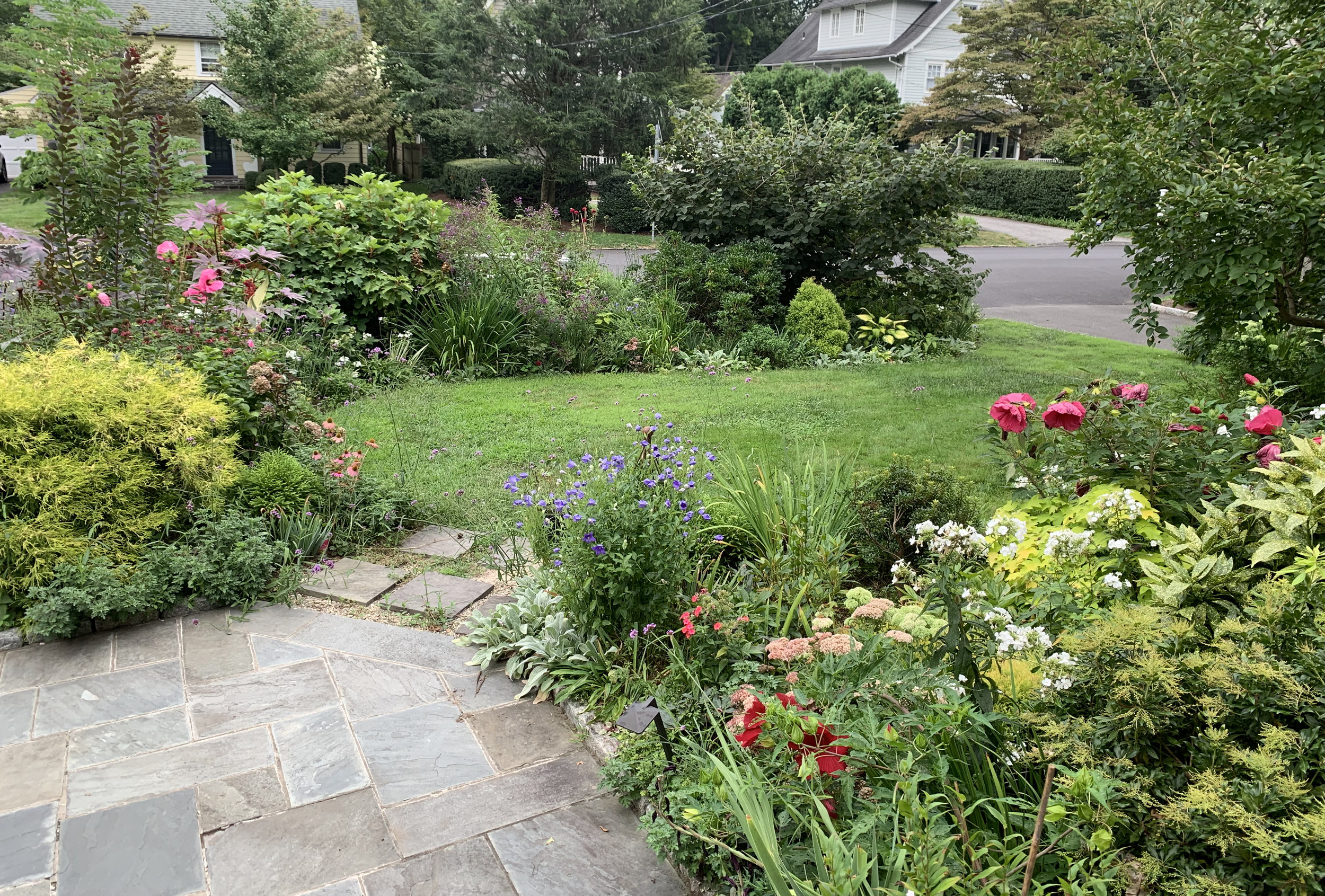Gardening Commandments: Thou Shalt Always...
…Unless You Don’t Want To
I was dividing perennials last weekend. There are a lot of sources that tell you when you need to divide perennials and give specific instructions of exactly when and how you should do it. Garden experts also give instructions on exactly what, when, and how to do pretty much everything. They give the impression that something really bad will happen if you don’t follow their edicts, but they are seldom specific about this doom. There is a reason for that: you pretty much don’t have to do anything in your garden.
‘Sheffield Pink’ mums. I will probably divide them next spring because I want more of them throughout the garden. If I don’t divide them, they will be fine and will bloom like crazy next year, too. Also, you don’t need to cut them back in midsummer, especially if you don’t mind their sprawl.
These commandments are intimidating, especially to non-gardeners. I think that a lot of them are turned by this advice because it makes a garden sound like a palliative care ward with a single, overworked nurse desperately intervening to stave off each plant’s imminent demise. That, along with the fear of being judged, scares off a lot of people.
Why is most garden advice presented as garden commandments?
Part of the reason is that some people want to be scared off. They don’t want another project to suck up their time, they don’t really care about outdoor spaces, or they just don’t like dirt. Making gardening sound too rigid and laborious is doing a service by providing an excuse to avoid it.
The main reason, though, is that it makes the advisor feel and sound like the definitive expert:
Strict dictums sound authoritative
Definitive, rigid rules make people feel secure. When you go to a doctor you want a diagnosis and a prescription. You don’t want them to ramble on about finding your own way to your personal ideal of good health.
Exceptions to your own rules further enhance credibility
You shouldn’t always try sound like the final word. People want to hear from an authority, but they aren’t stupid: they know that nothing in this world is iron clad. Talking about a few exceptions reinforces the notion that your advice is based on a learned position, because you are admitting that you and your learned colleagues can’t know everything. It also relaxes those who don’t agree with all of your dictums.
Complicated rules make your advice more seem nuanced and sophisticated
Complicated instruction with lots of sub-rules give the impression of in-depth knowledge. The main features of these complications is that they need to apply to many specific situations, including a few obscure ones:
When writing, short, direct sentences are best. Make sure your spelling, usage, and punctuation are correct and consistent.
When talking to friends and neighbors, find a concerned tone that’s not condescending.
When talking to clients, bring up your relevant experiences on previous jobs.
When presenting, always have slides that outline these rules, but do not spend too much time on them.
When blogging, use irony to drive your point home.
Be True to Your Own Garden Philosophy
My gardening philosophy (which is pretty much my philosophy on everything) is that it’s my garden, and I can do whatever the hell I want.
Flowers: aster ‘purple dome’, sedum ‘matrona’ and ‘autumn joy’, self-sown snake root (the white flower), and japanese anenome ‘robustissima.’ The foliage is oak leaf hydrangea (the big green plant in back), cotinus (smokebush) ‘purple robe’ (the tall deep purple leaves to the left of the mailbox), variegated iris and lobelia.
Broken Commandments: I did not cut the asters back in summer, the sedum are dead in the center, I let the snakeroot self sow too much, I cut the smokebush back to the ground every spring so I never get flowers - I don’t like smokebush flowers. Everything is crowded and nothing is staked.
Am I forgiven?
It’s a little more complicated if your garden produces some sort of crop - like veggies, herbs, or cut flowers, but my garden is an ornamental garden and all it has to do is look good to me. I love bold design, so I have a lot color and contrasting textures, and the rhythm is more like experimental jazz than a marching band. Lots of people prefer something more regular and restrained, as is their right. I’m not going to pretend that I’m indifferent to criticism and judgment, but if they cannot appreciate another aesthetic, then they can avert their eyes. It’s really freeing to realize that since I can’t please everyone there’s no point in trying and I should concentrate on what I appreciate.




